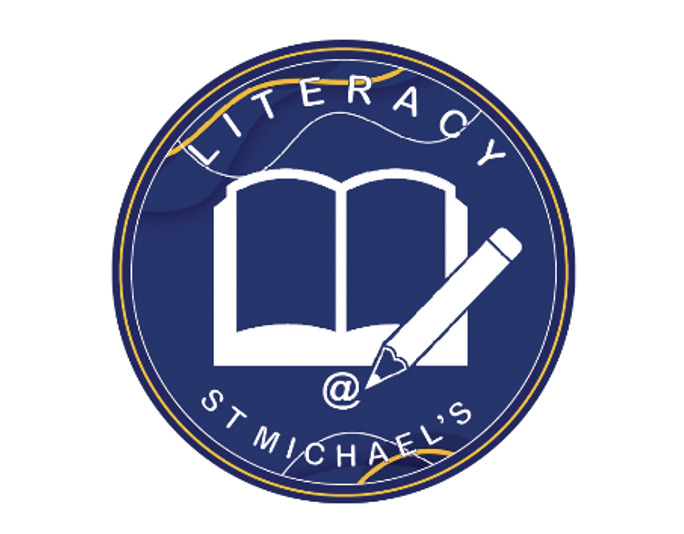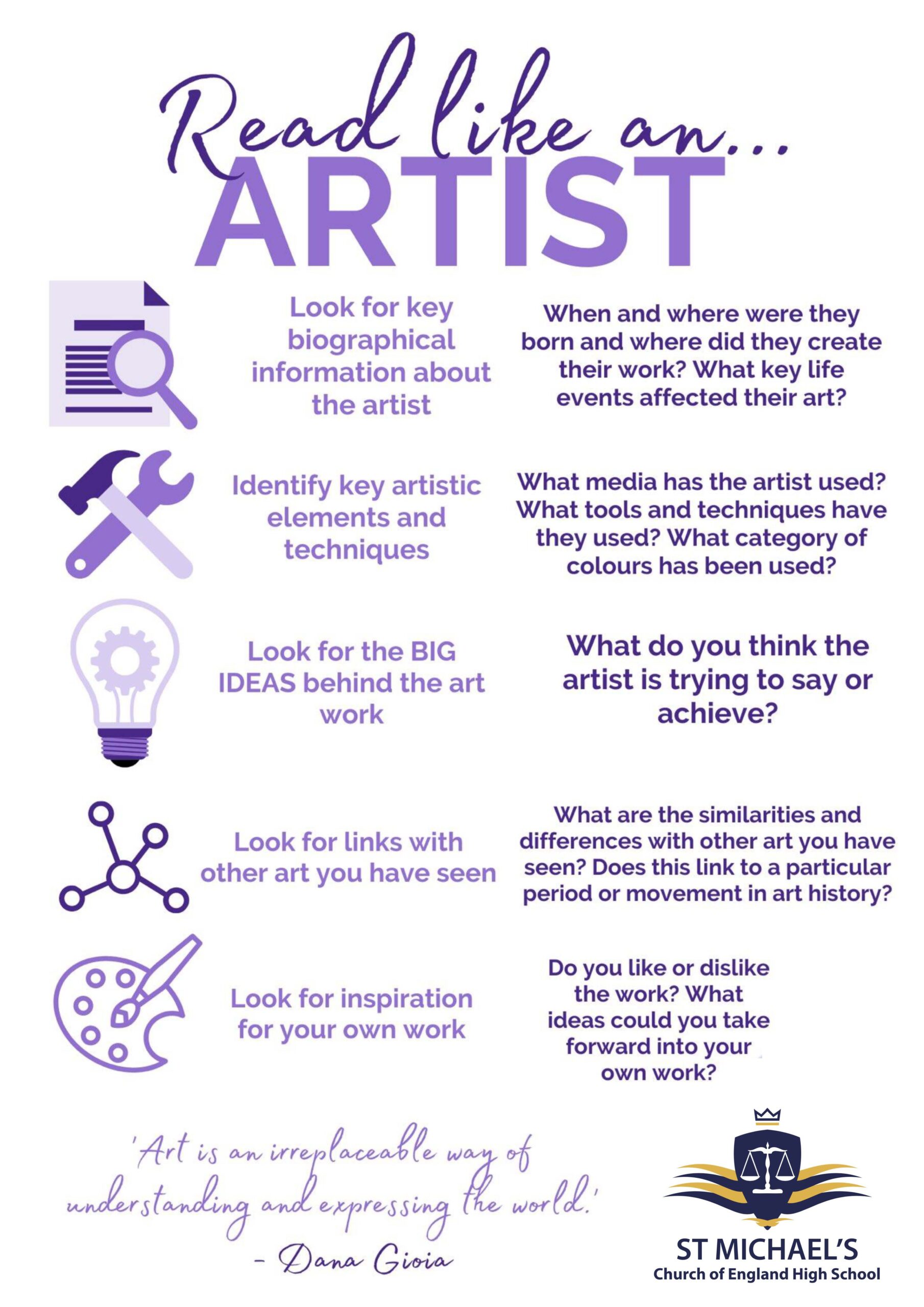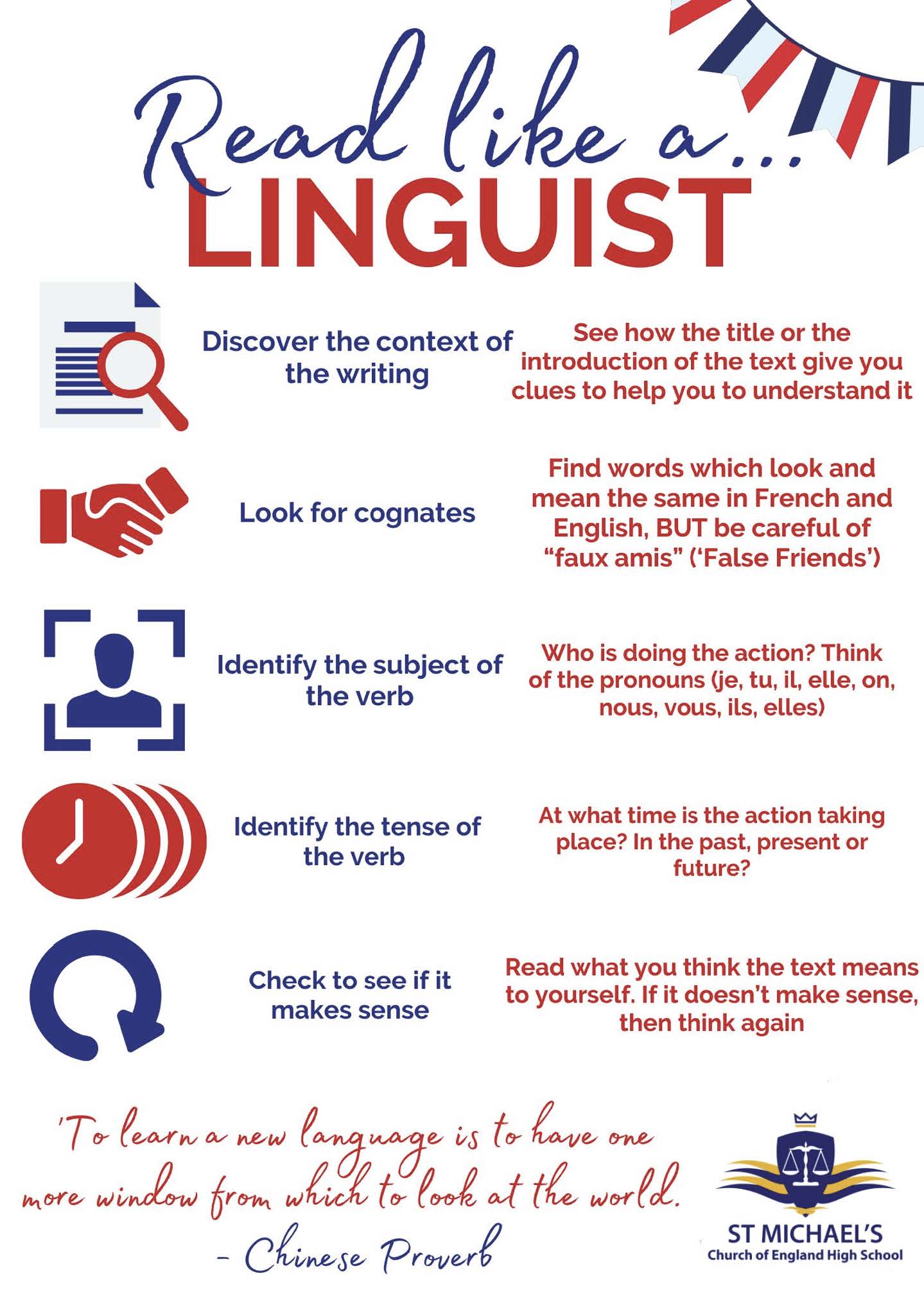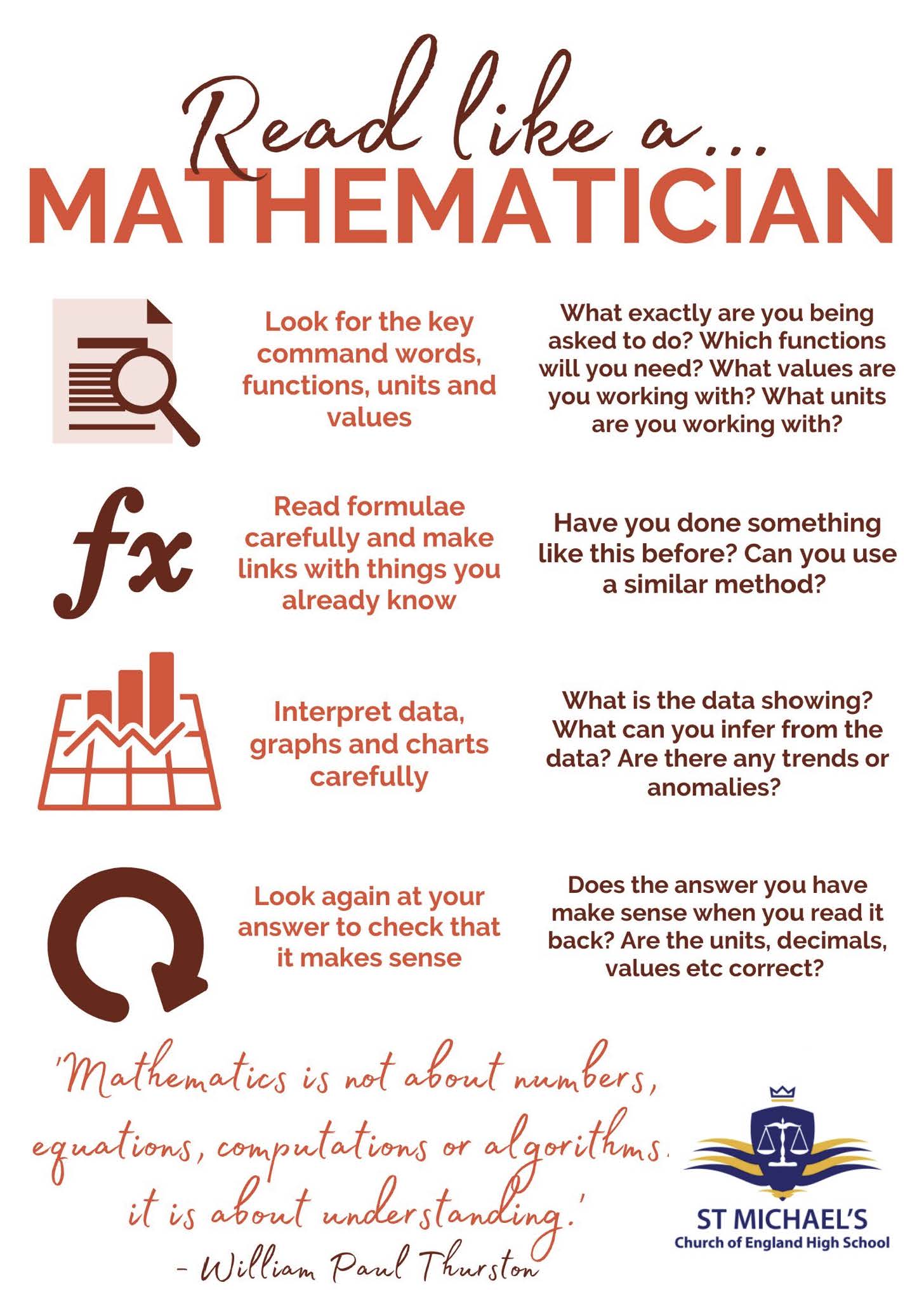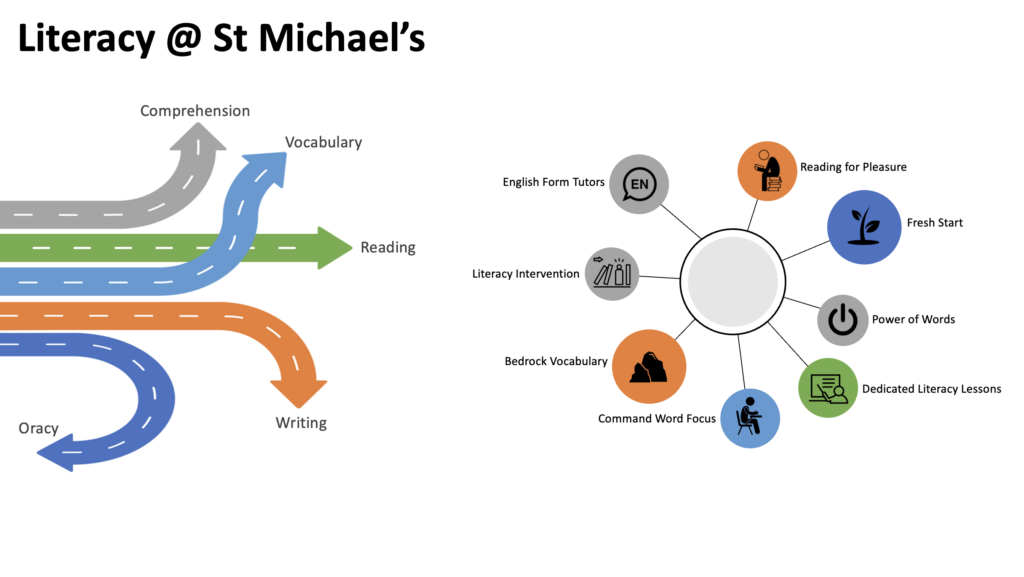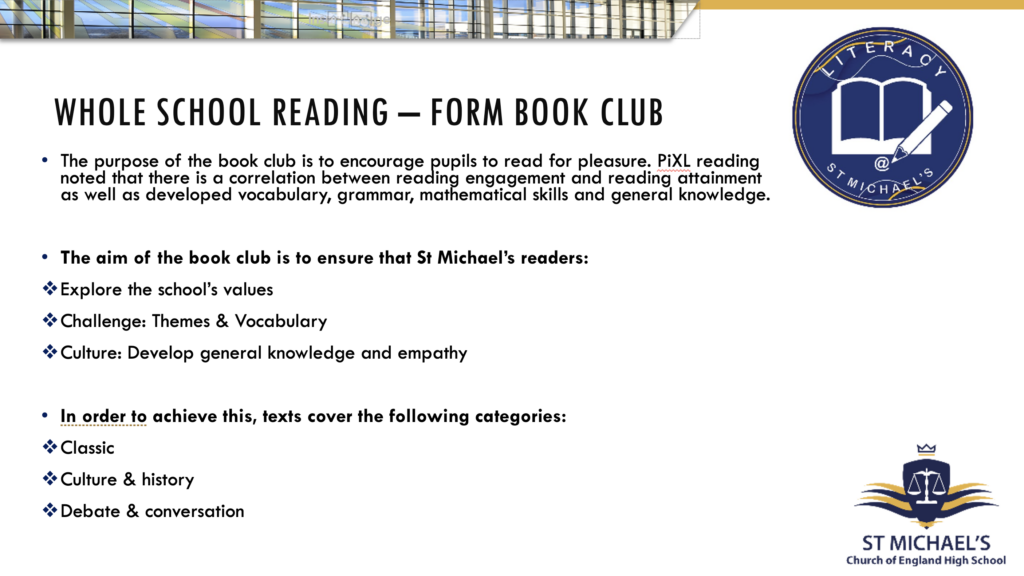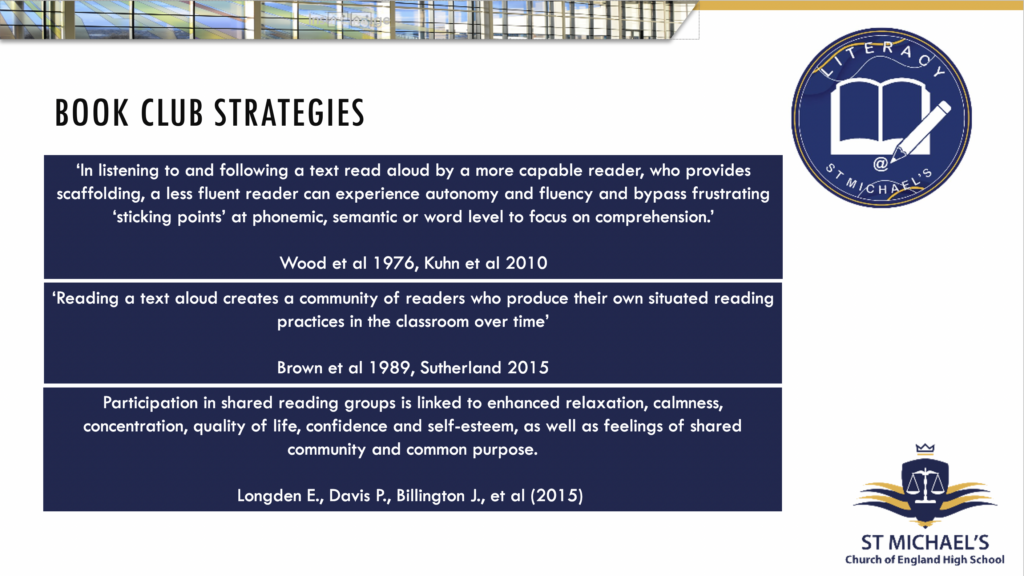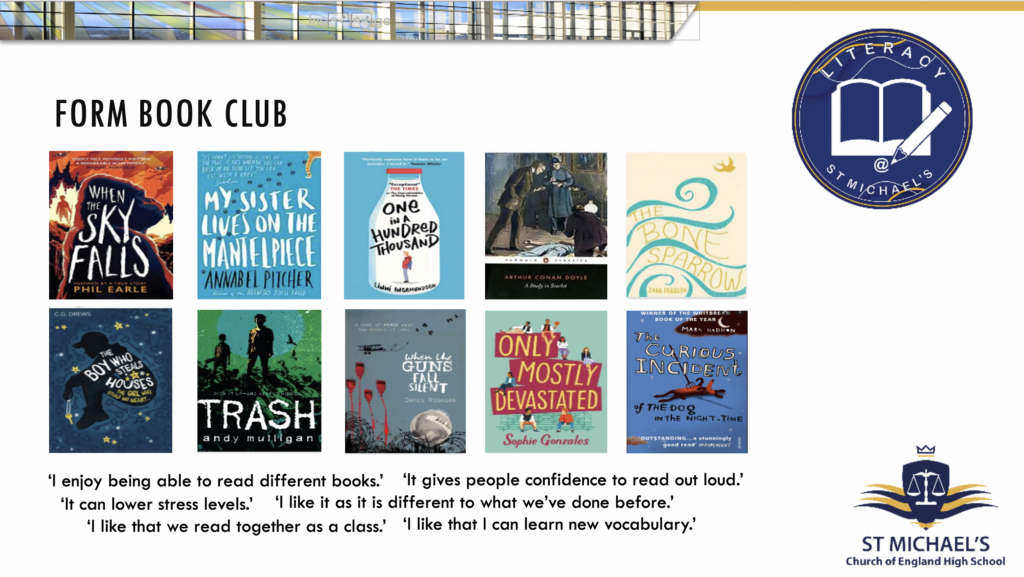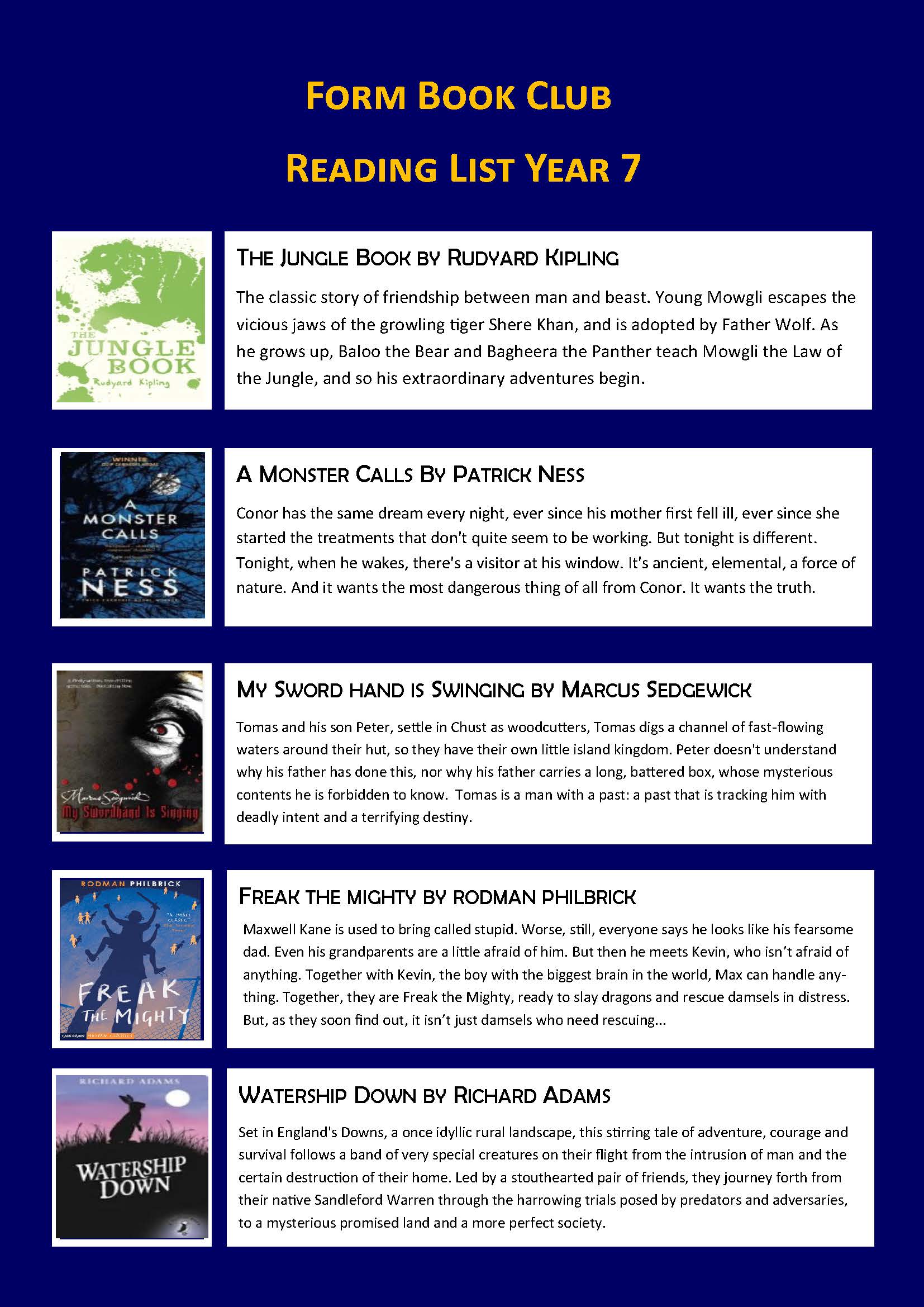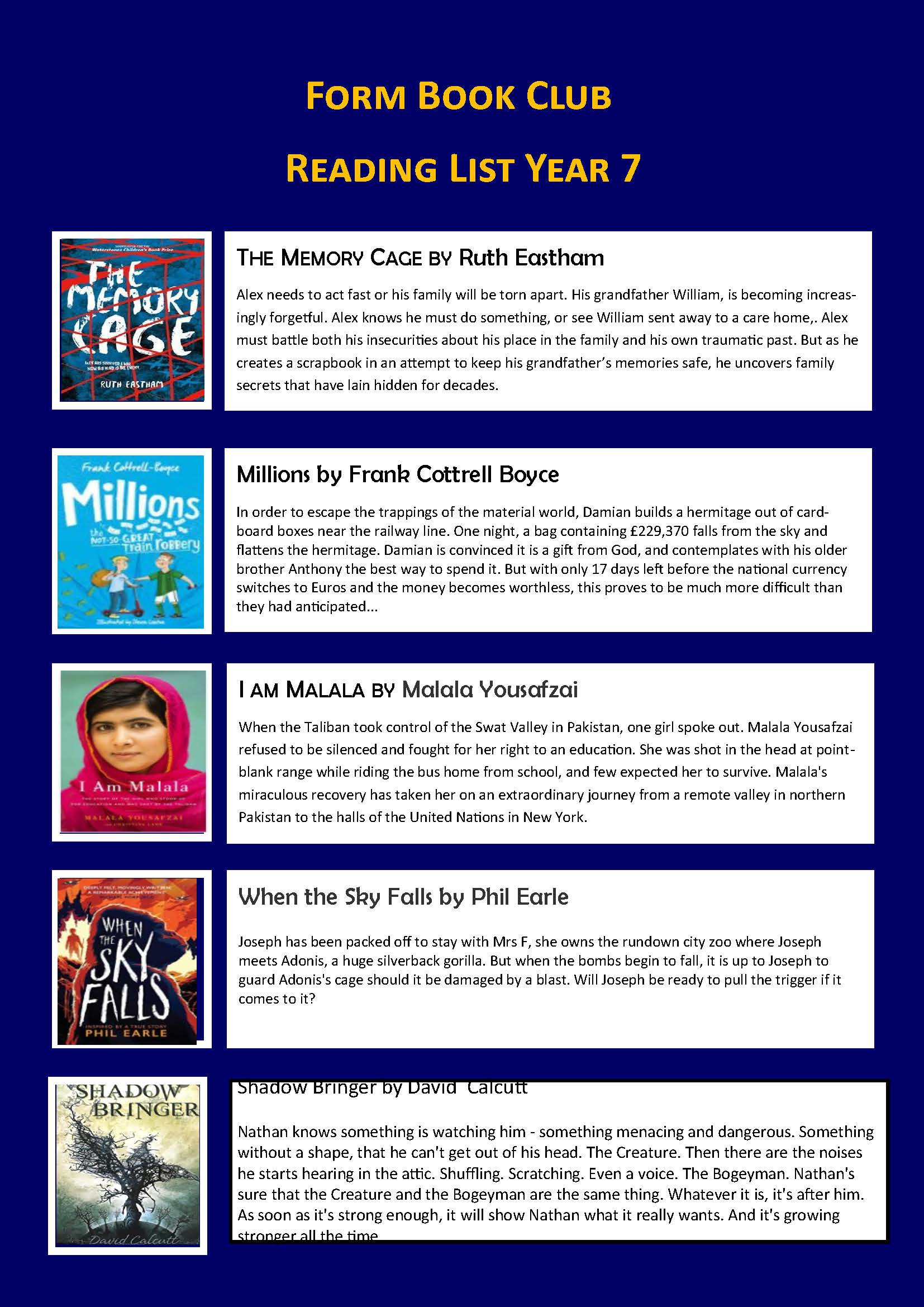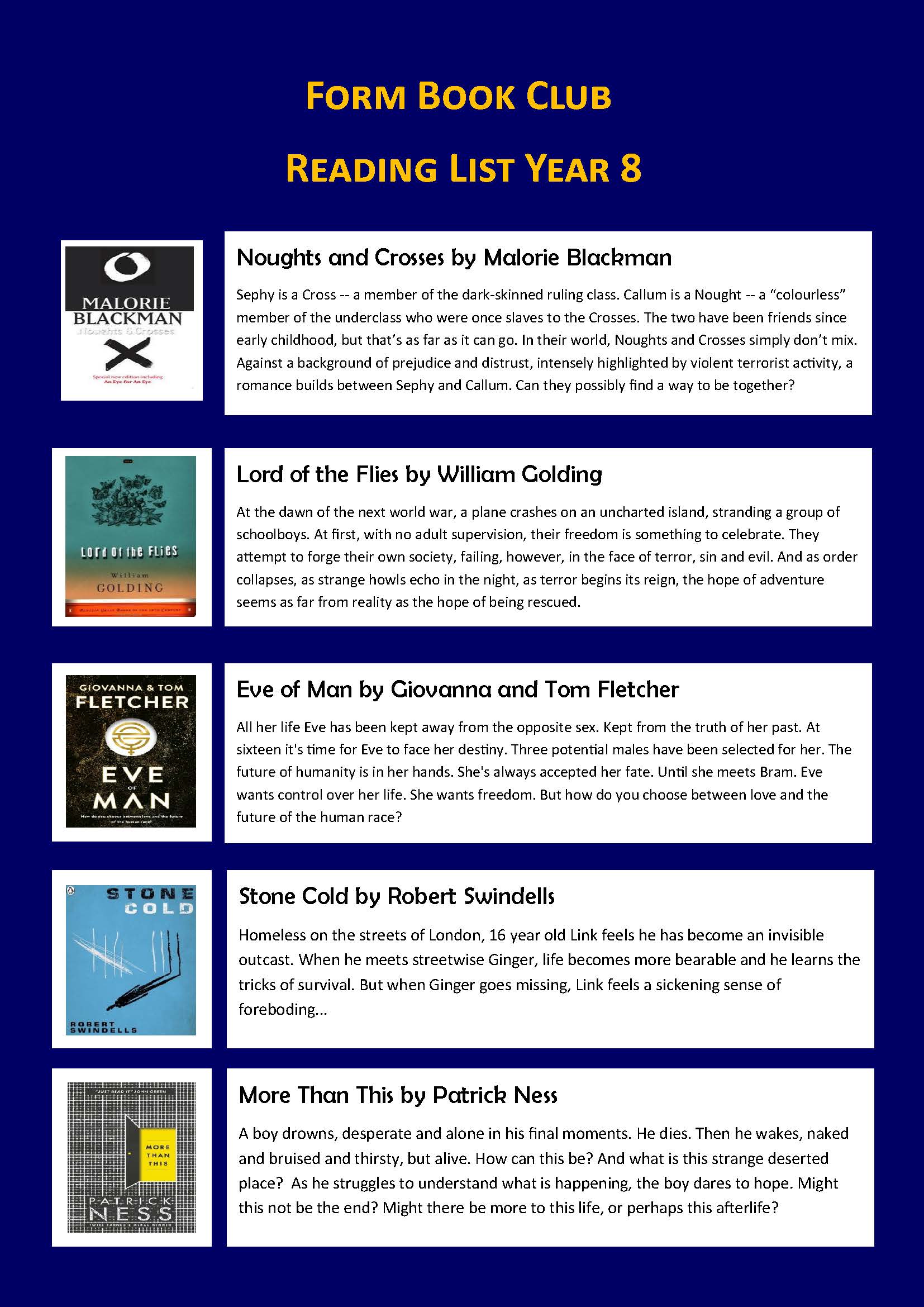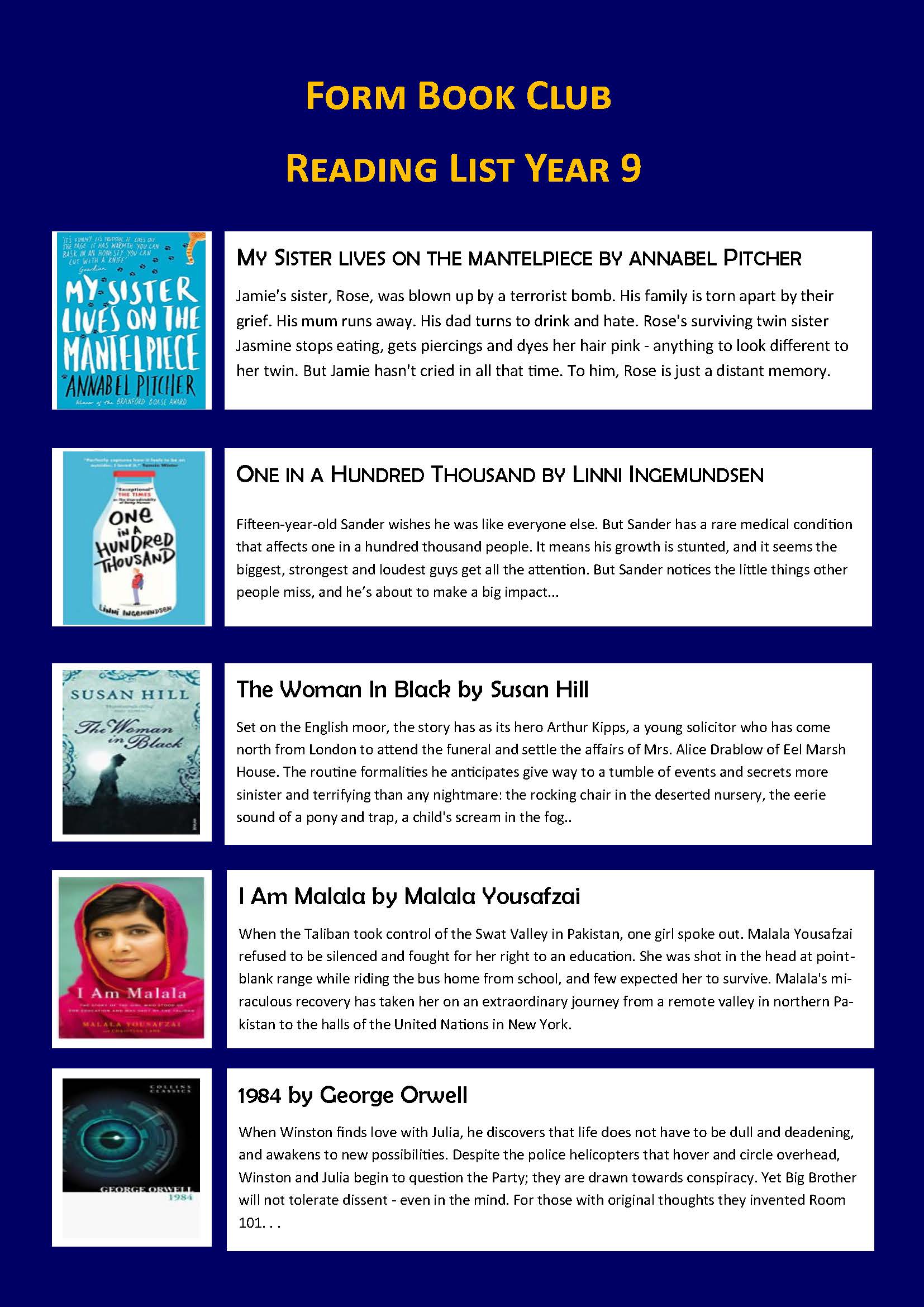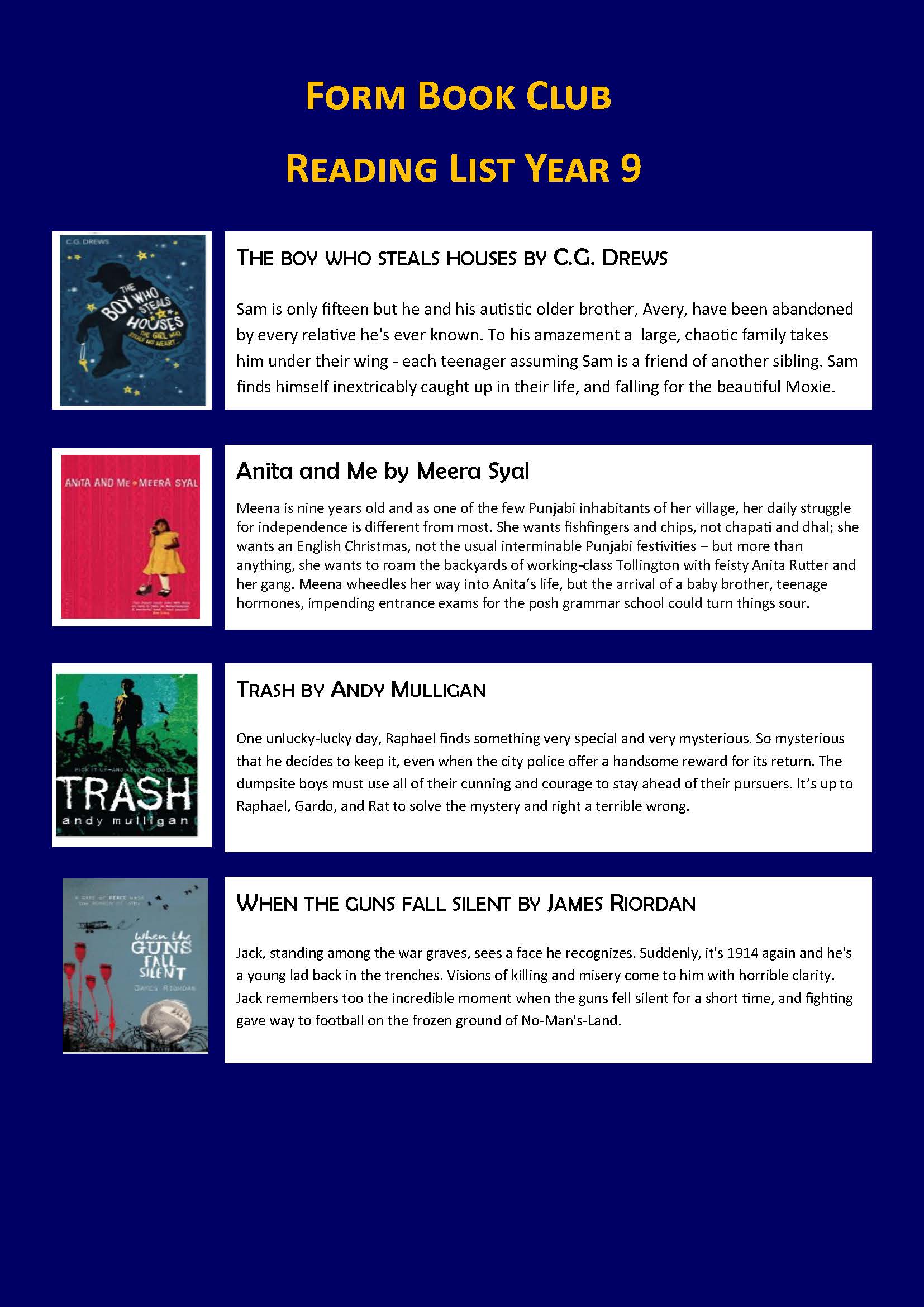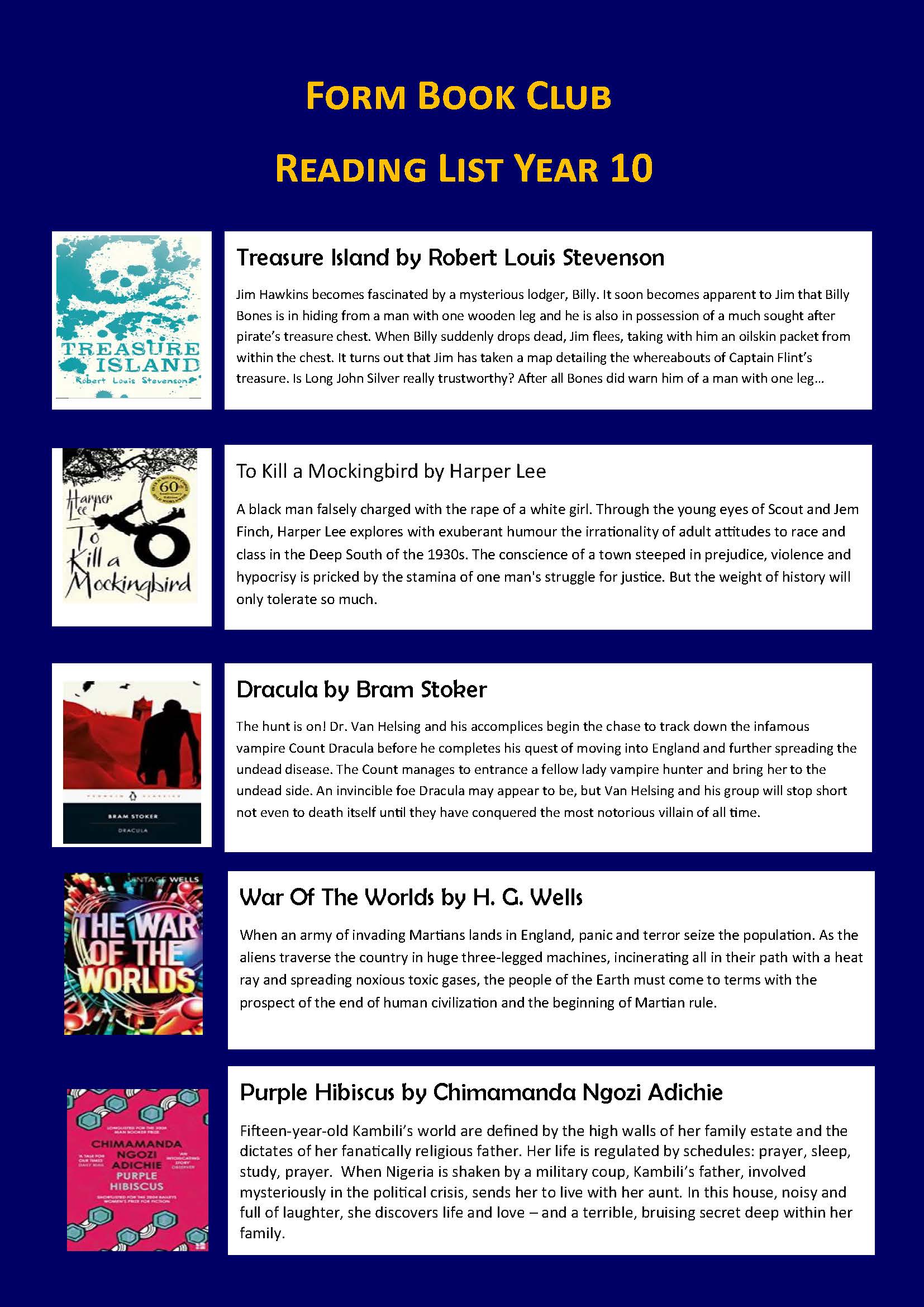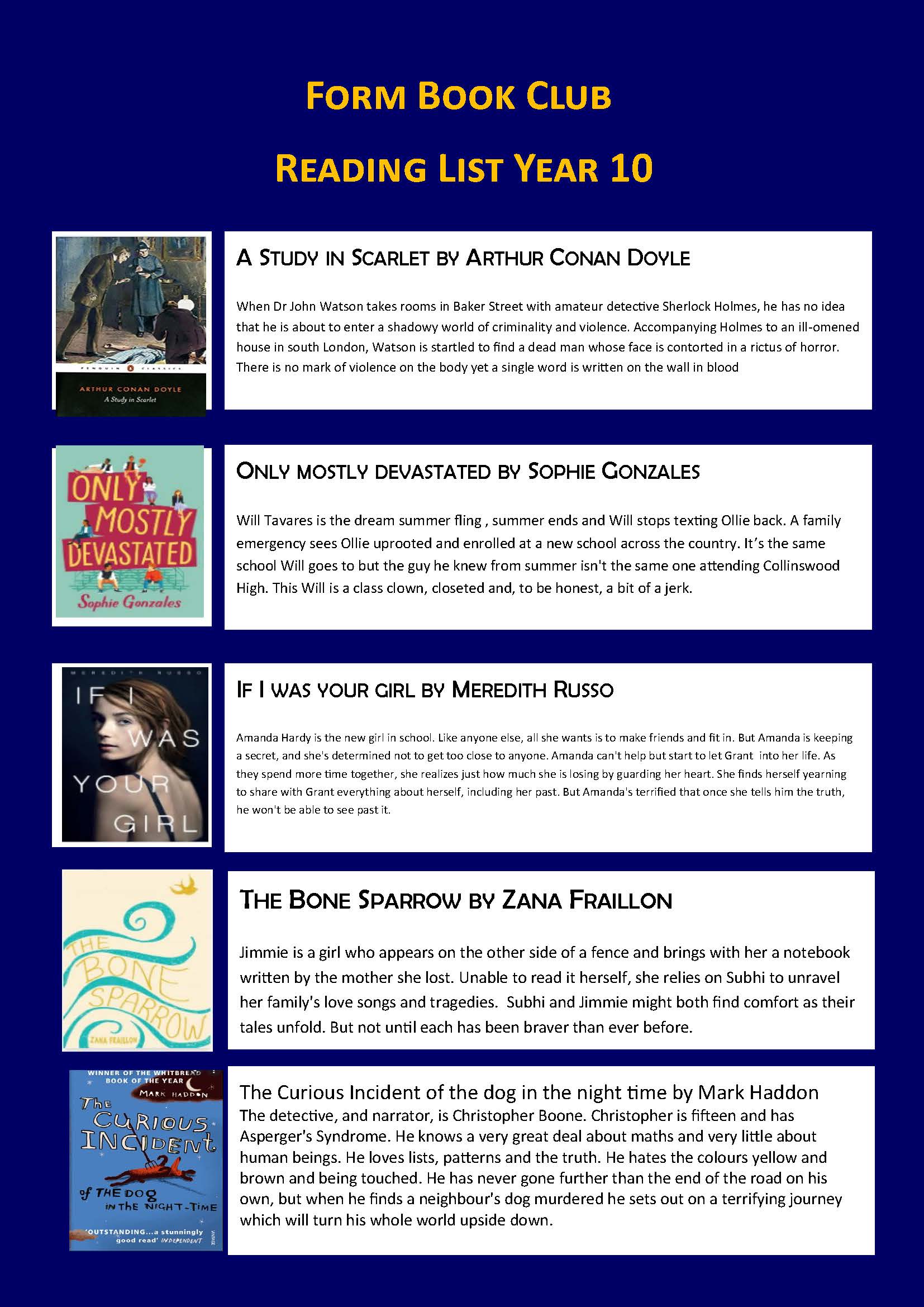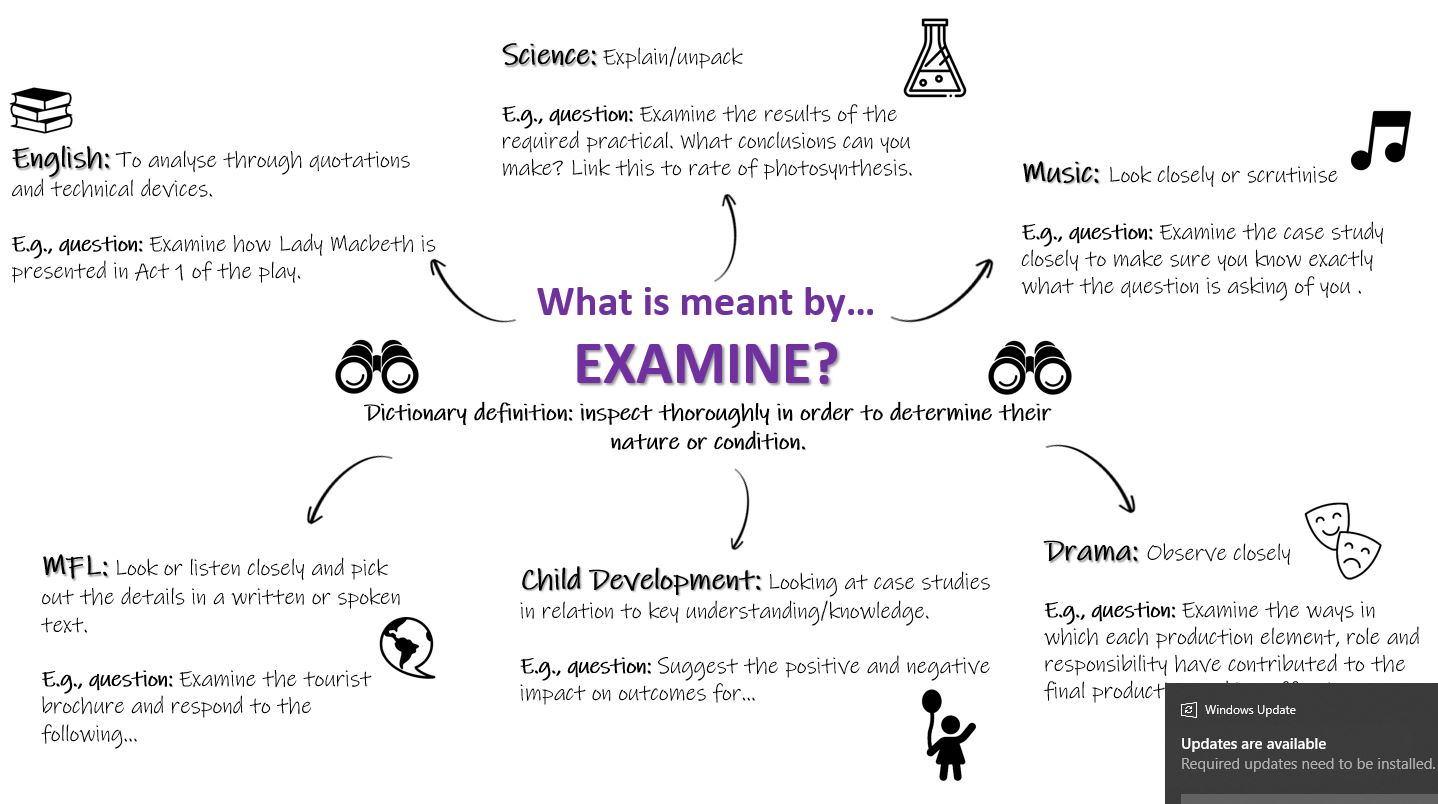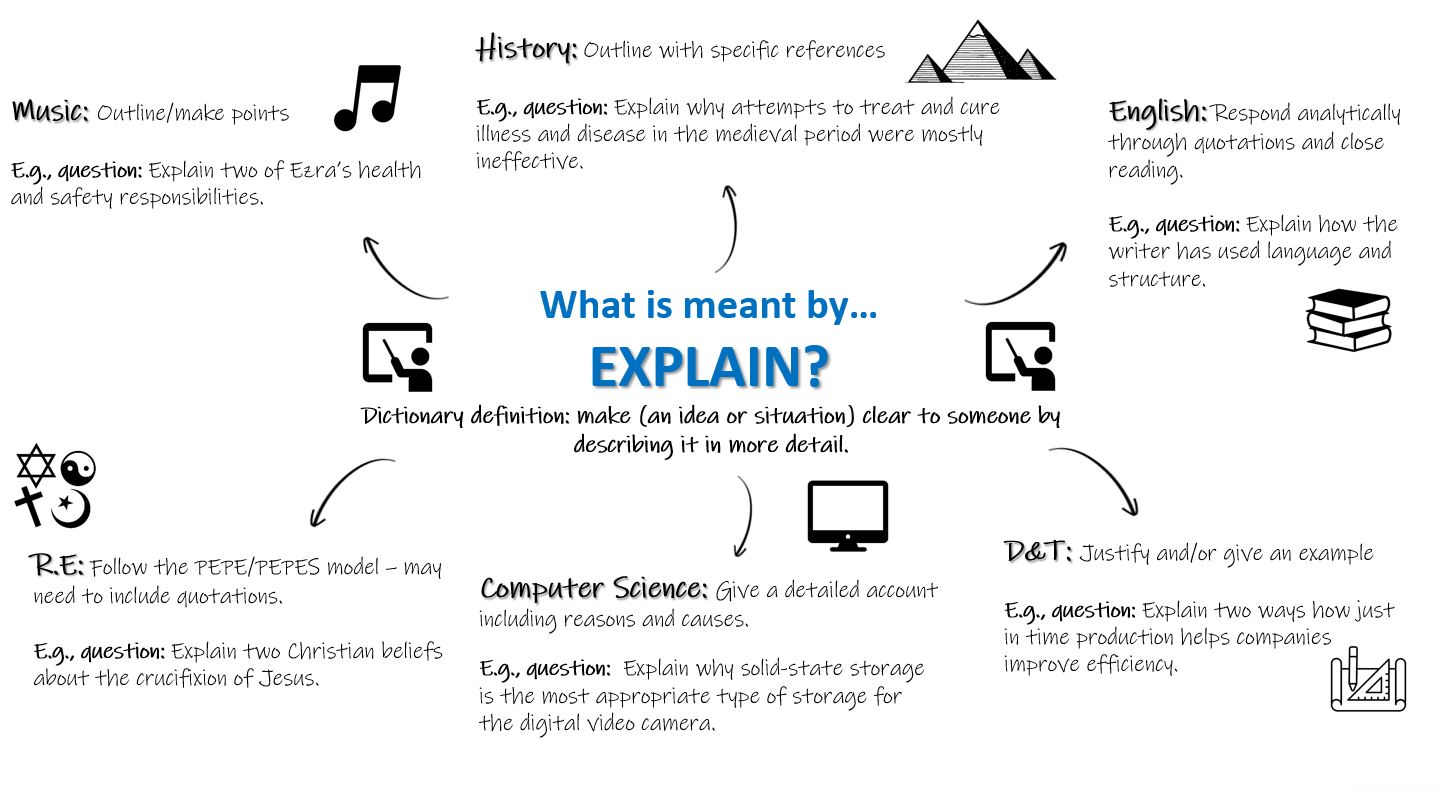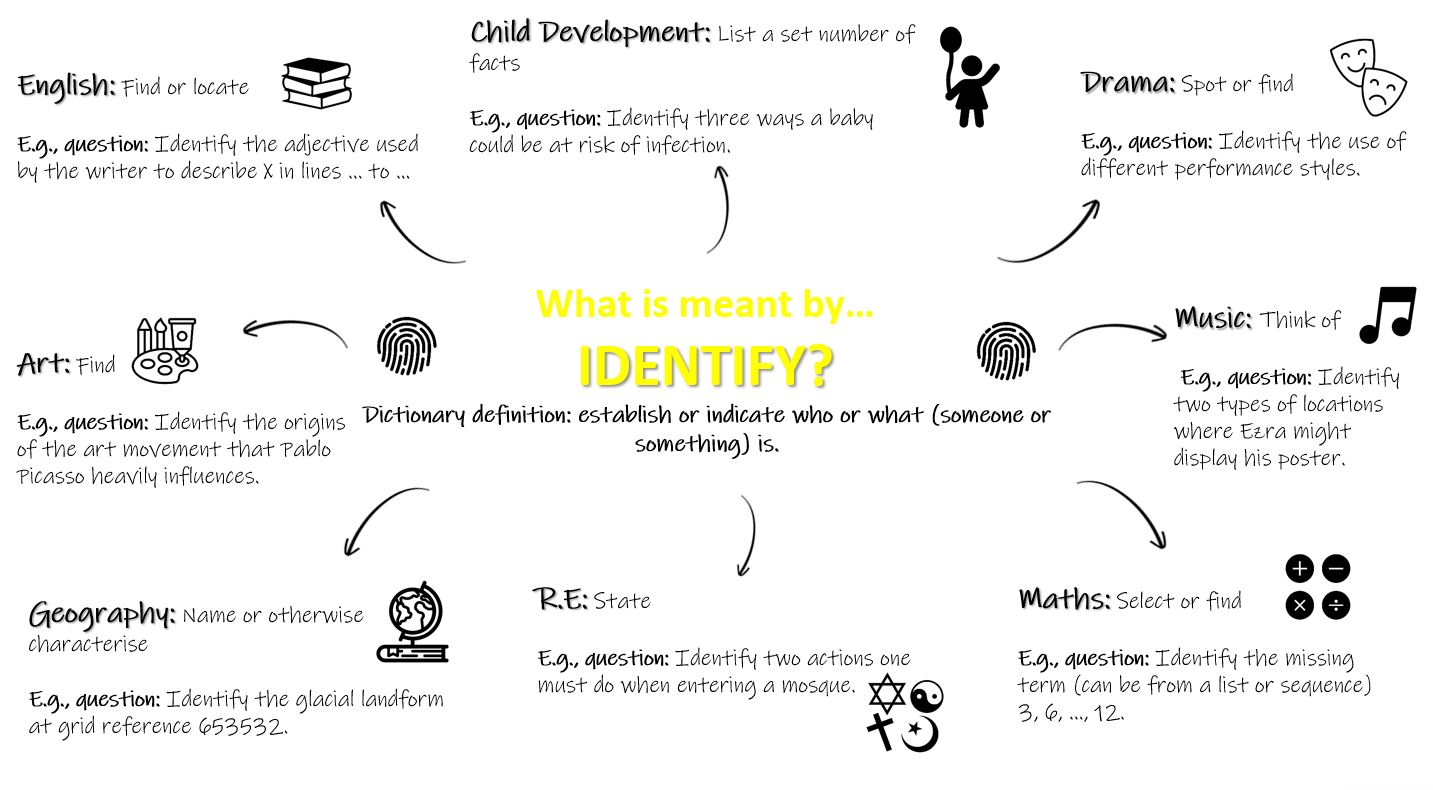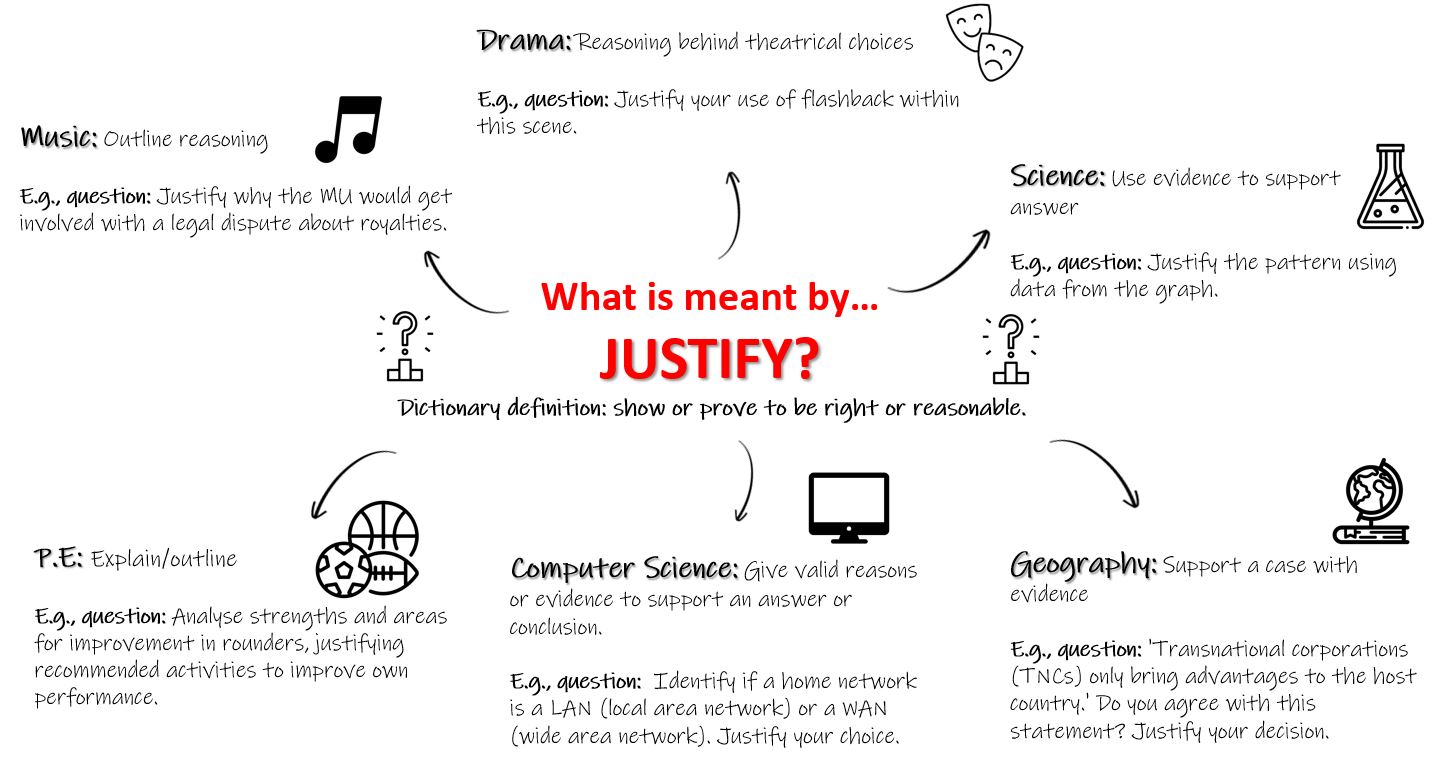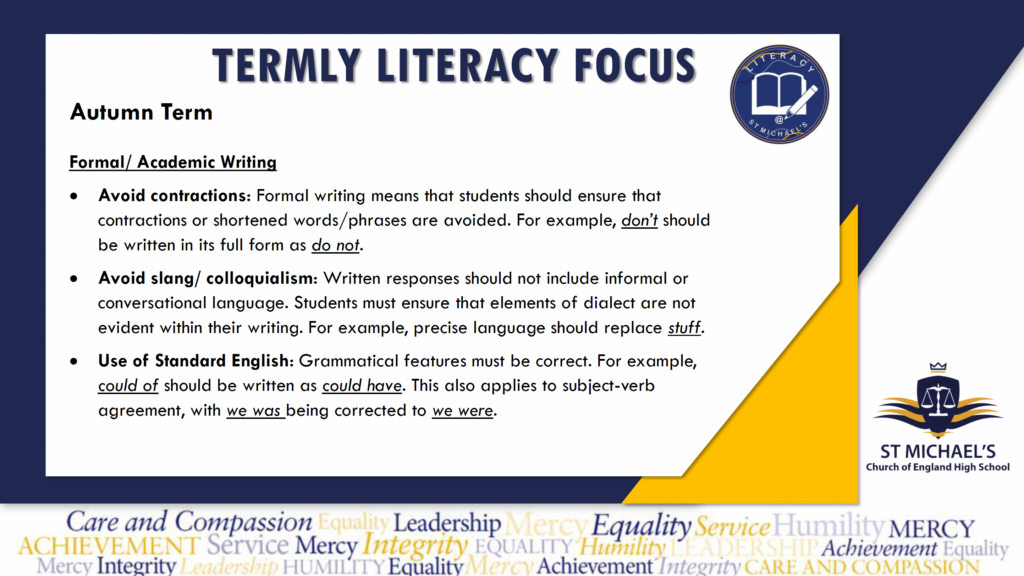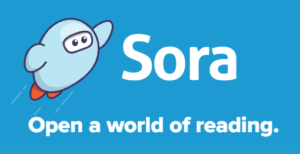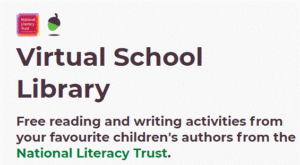Intent
Literacy at St Michael’s is underpinned by the belief that to be literate is to learn. Literacy sits at the heart of our curriculum, functioning as not just a school priority, but a fundamental right for all of our students. Across both KS3 and 4, students are exposed to a focused set of literacy initiatives, with the central aim of providing each student with the requisite skills to function and thrive in the outside world. James Murphy states that ‘Written language has become the foundation on which the information revolution is built. Without access to this foundation, full participation in our society is impossible’. At St Michael’s, we strive to provide all students with this foundational literacy understanding.
Our curriculum will:
- place literacy at the centre of school life by embedding core skills throughout each subject, making them present in all lessons
- provide opportunities to cultivate a love of reading and storytelling, viewing reading as a treasured pastime in addition to an academic necessity
- create an understanding of the multimodality of literacy in the modern era
- enhance students’ use of ambitious vocabulary, both in written and oral forms
- develop students’ knowledge of command words and exam-specific language, encouraging them to consider the schematic links/connections between the demands and challenges of different subjects
- provide opportunities for additional support through rigorous and bespoke intervention programmes
- promote regular and consistent use of the school’s library resources to supplement and strengthen reading across the curriculum
- embed a consistent approach to marking literacy across subjects through easily understandable marking symbols
Implementation
Across our curriculum, we adopt a multifaceted approach to literacy that incorporates learning in individual, group, online, and in-person settings. This aims to mirror the interactive, often dynamic means through which young people engage with reading and literacy in the modern age. Students are provided with a diverse curriculum that weaves together skills relating to reading, writing, comprehension, vocabulary, and oracy. Its spiralised structure sees these topics returned to and developed at multiple junctures throughout KS3.
Key Pedagogical Initiatives:
- form time interventions
- English form tutors in Year 7
- Fresh Start
- Bedrock Vocabulary
- Power of Words
- vocabulary continuum
- etymology grids
- command word infographics
- Vocabulary and Inference programme
- standardised literacy marking
Such initiatives are placed within a framework wherein literacy is given priority across all departments. To support this school-wide culture, literacy is promoted via tailored CPDL training that seeks to reiterate the need for literacy to be included in all subjects and curriculum areas. See below for our ‘Literacy Roadmap’:
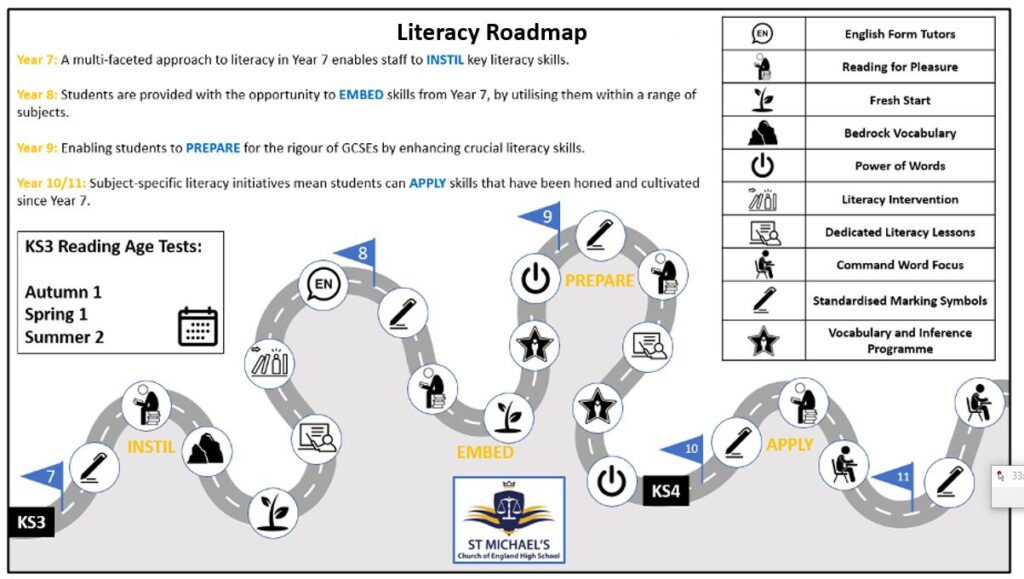
Impact
By the end of KS3, students will have been exposed to a broad range of literacy skills and topics, aimed at supporting both their broader academic studies and fostering a love of the English language. Students will be able to communicate accurately in both written and oral forms, using a diverse vocabulary set that functions appropriately in varied social scenarios. Reading age data will enable close tracking of reading improvements, and support the implementation of effective intervention initiatives. The wider impact of our approach to literacy can also be evidenced through the monitoring of progress in written subjects, with literacy providing a means of interweaving the key communicative skills that underpin subjects across the curriculum. Our KS3 curriculum embeds the fundamental, substantive knowledge of literacy that forms the building blocks of all future learning.
By the end of KS4, students will be able to apply the plethora of literacy skills acquired in KS3 to their options choices and core-curricular studies. A disciplinary approach to literacy will see subject specificity combined with broader, transferable skills. Students will have a secure understanding of how literacy transcends their studies, with key vocabulary and written skills being evident across all subjects. Their understanding of subject-specific vocabulary will complement an appreciation of how command words should be interpreted in each subject. Overall, our approach to literacy in KS4 will cultivate a sense of nuance and discernment, wherein students can clearly comprehend the similarities and differences between the literacy demands of each subject at GCSE level, ahead of summative examinations in Year 11.
This table outlines the expected skills each student will have covered throughout their St Michael’s journey:
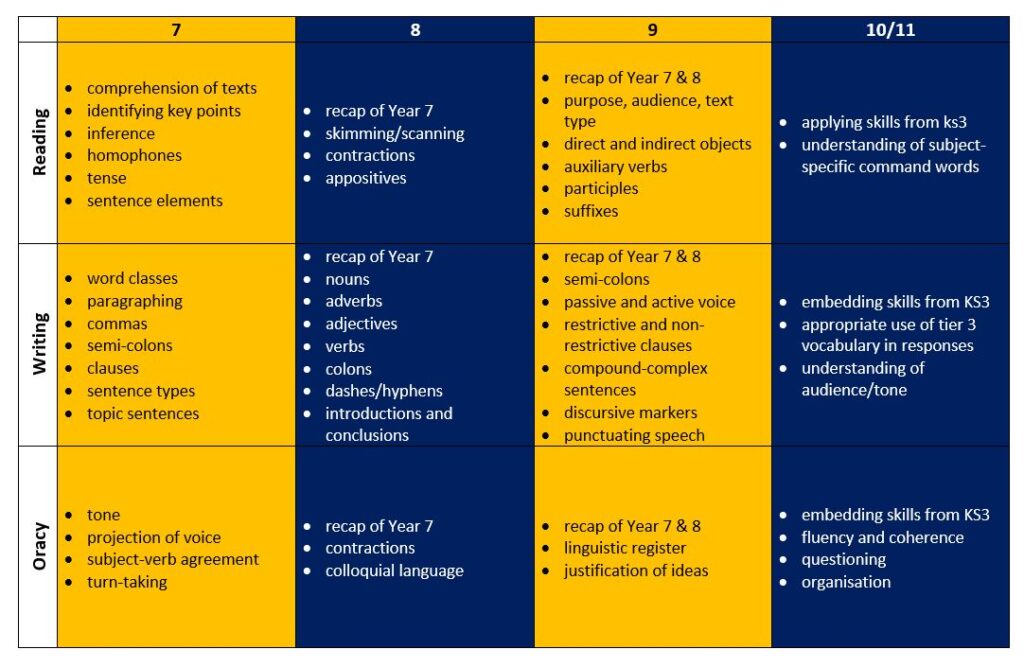
Year Group Overview
Year 7: Upon entering St Michael’s, Year 7 students are provided with a varied range of opportunities to instil crucial literacy skills and understanding. Students are given a form tutor from the English department, alongside tailored literacy interventions. A love of literature is cultivated through whole-class ‘reading for pleasure’ sessions, wherein students enjoy a range of challenging non-fiction and fiction texts. A variety of support initiatives are also implemented to assist students of all abilities, with the Fresh Start programme reinforcing key phonics knowledge from primary school, and dedicated, timetabled literacy lessons strengthening key skills relating to reading, writing and comprehension. Fresh Start solidifies procedural and tactic knowledge. Vocabulary, whilst a central focus across the curriculum, is prioritised via the Bedrock Learning online platform, through which students complete a weekly homework task that aims to bolster students’ understanding and application of higher-order vocabulary. Together, these initiatives seek to foster an appreciation of literacy and instil core skills that are applicable across all subjects.
Year 8: Year 8 enables students to embed and enhance each of their literacy core skills. Form time ‘reading for pleasure’ is continued as students’ love and appreciation of both canonical and modern texts is developed. Foundational learning in the form of Fresh Start is partnered by the ‘Power of Words’ additional reading programme, and the bespoke ‘Vocabulary and Inference’ programme, both of which ensure that students of all abilities can access a wealth of literary and non-fiction texts. These small group intervention sessions provide an invaluable opportunity to not only hone students’ reading skills but also to enhance the fluency and comprehension elements of the reading process. Half-termly literacy foci help to reinforce literacy as a whole-school priority, with all subjects focusing on key transferable skills (eg. The formation of an academic writing style) throughout the given period.
Year 9: Preparing students for the rigour and demands of GCSE studies is at the heart of literacy in Year 9. Dedicated literacy lessons enable students to explore the disciplinary demands that accompany analytical and creative writing, and expose students to challenging fiction and non-fiction extracts from a wealth of scholarly sources. These sessions also provide a means of contextualising reading; students begin to understand the inseparable nature of literature from historical and social contexts. The passion for reading is further instilled through form time ‘reading for pleasure’, alongside the continuation of the ‘Power of Words’ and ‘Vocabulary and Inference’ programmes, which aim to further increase accessibility to literature for all.
Year 10/11: The shift to disciplinary literacy skills sees students focus on the language of assessment and instruction. Through form-time sessions, students are able to investigate the application of subject-specific and command vocabulary. There is an increased focus on the schematic links between subjects, with literacy providing a means of navigating the often complex demands of differing exam criteria and mark schemes. By cultivating an in-depth understanding of academic vocabulary, students are able to distinguish between, for example, the skill of ‘analysis’ in Geography and how the term may be used in English. Continuation of the ‘reading for pleasure’ initiative sees the love of literature remaining central to students’ studies and means students can branch out from set texts through wider reading and discovery.

